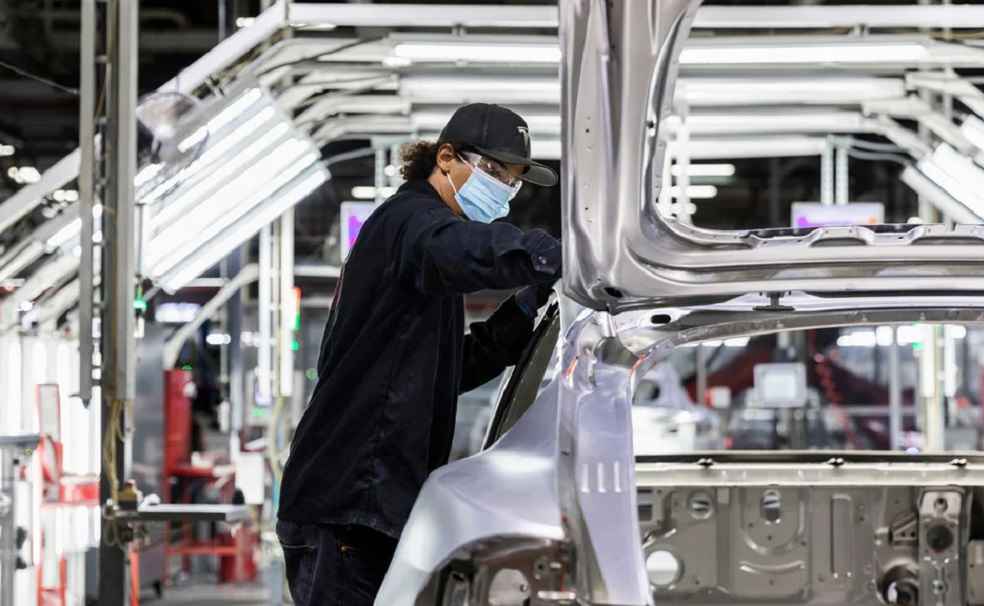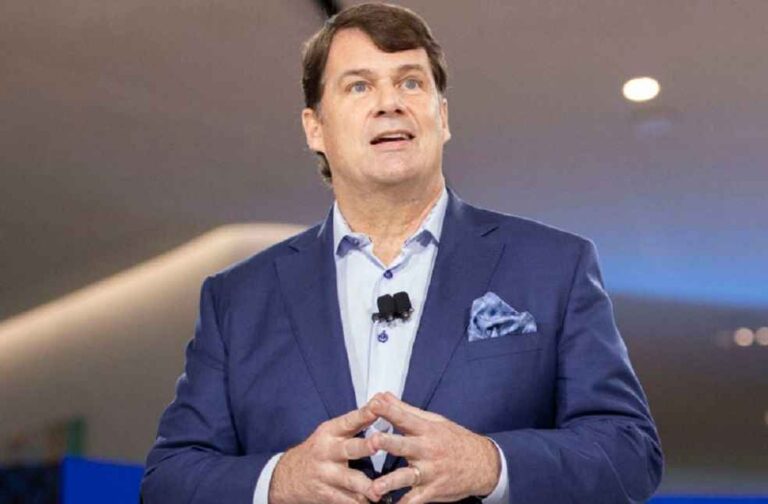Ford CEO Jim Farley has issued a stark warning against the potential imposition of a 25% tariff on automotive imports from Canada and Mexico, stating that such a move would have devastating consequences for the U.S. auto industry. Speaking at the Wolfe Research Auto, Auto Tech, and Semiconductor Conference in New York, Farley expressed deep concerns over the potential fallout from President Donald Trump’s proposed tariffs.
Industry Chaos and Competitive Disadvantages
While Trump has framed the tariffs as a measure to strengthen domestic auto production, Farley argued that the reality would be far different. “So far what we’re seeing is a lot of cost and a lot of chaos,” he said. He warned that such tariffs would harm the industry, stating, “Long term, a 25% tariff across the Mexico and Canada borders would blow a hole in the U.S. industry that we’ve never seen.”
Farley also highlighted how these tariffs would disproportionately benefit foreign competitors. “Frankly, it gives free rein to South Korean, Japanese, and European companies that are bringing 1.5 million to 2 million vehicles into the U.S. that wouldn’t be subject to those Mexican and Canadian tariffs. It would be one of the biggest windfalls for those companies ever.”

Ford’s Response and Preparedness
Ford’s executive team is already taking measures to prepare for the potential economic impact. Ford Chief Financial Officer Sherry House stated that the company has mobilized teams to analyze material flows and inventory levels, ensuring that it can navigate the potential disruption. “Right now, we’re paused on a lot of the Mexico and Canada tariffs,” House noted, indicating that Ford is taking a cautious approach until further details emerge.
General Motors CEO Mary Barra echoed similar concerns, explaining that GM has been preparing since late November. “We started doing scenario planning and looking at what are the different things we can change, we can move,” she said. Barra estimated that GM could mitigate 30% to 50% of the tariffs’ impact without deploying significant capital, but longer-term tariffs would require more drastic measures.
Broader Economic Implications
Beyond the immediate cost increases, Farley pointed out that the proposed tariffs could put American jobs at risk, particularly in the electric vehicle sector. He cited the Inflation Reduction Act’s $7,500 tax credit for EV buyers and production tax credits for battery and assembly plants as critical incentives for the industry. The repeal of such incentives, combined with tariffs, could severely impact Ford’s operations.
“We’ve already sunk capital— even though we’ve rationalized it—into battery production and assembly plants all through Ohio, Michigan, Kentucky, and Tennessee. Many of those jobs would be at risk if big parts of the IRA are repealed,” he warned.
Impact on Vehicle Prices and Affordability
The automotive supply chain’s deep interconnectivity means that tariffs on imported steel and aluminum would inevitably raise vehicle prices. Kevin Roberts, Director of Economic and Market Intelligence at CarGurus, emphasized that this could further strain affordability for consumers. “This could add pressure during a time when affordability is top of mind for consumers and automakers alike,” he said. He noted that currently, 42% of American-made new cars are priced over $50,000, with SUVs and trucks particularly vulnerable to price hikes due to their high material usage.

Farley and Ford Chairman Bill Ford have frequently addressed the challenge of controlling vehicle costs while maintaining competitiveness. However, Farley acknowledged the uphill battle the industry faces. “We’re not naive, we have to work on our costs. This is going to be a heck of a… market this year,” he remarked, highlighting the uncertainties surrounding tariffs and policy shifts.
Farley is set to travel to Washington, D.C., for discussions with members of Congress regarding the tariff proposal. This marks his second trip to the capital in three weeks as Ford seeks to mitigate the policy’s potential ramifications.
Reflecting on the overall uncertainty, Farley remarked, “There may even be a speculative part of the market where prices come up because the tariffs are even rumored. So we’ll have to deal with it. That’s what I’m talking about with cost and chaos.” With the auto industry already in the midst of a competitive ‘global street fight’ over electric vehicles and market expansion, he stressed that such disruptions could not come at a worse time.
EV WORLD | Rivian Opens U.S. Sales for Electric Commercial Vans to Fleets of All Sizes





